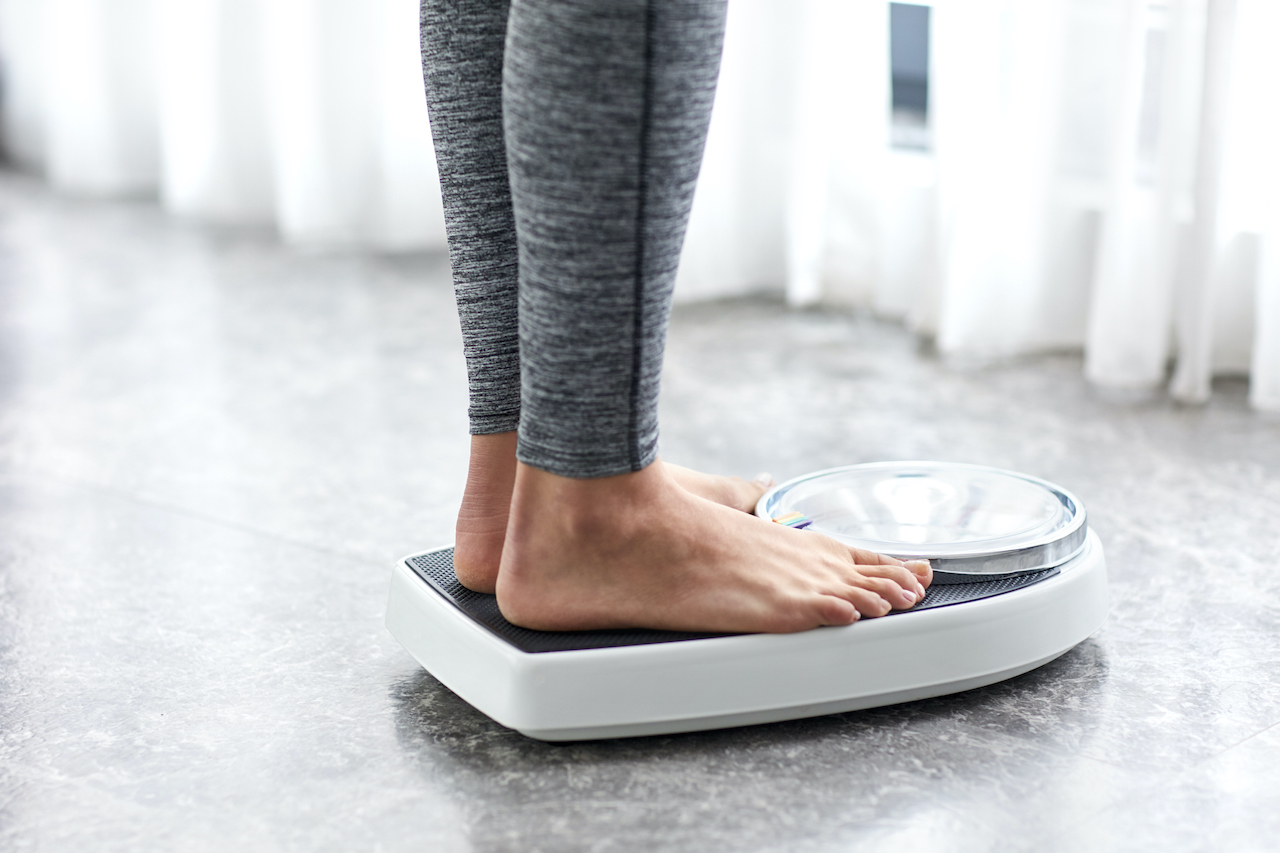Intermittent fasting 16:8: How-to, benefits and tips
Thinking of trying 16:8 intermittent fasting? Here's everything you need to know

Intermittent fasting 16:8 is a time-restricted way of eating where you fast for 16 hours of the day and only consume food within an eight-hour window. Some people follow this diet daily, while others choose to do it a few days a week.
“Intermittent fasting is an increasingly popular weight loss method and there are numerous types of fasting diets, including the popular 5:2 diet,” says Lucy Jones, associate nutritionist at Harley Street At Home.
So how does it work? When the body goes into ‘starvation’ mode during a fast, due to lower glucose levels, it starts a homeostatic process known as autophagy, the body's way of cleaning out damaged cells to regenerate newer, healthier ones.
As well as weight loss, lots of people do intermittent fasting for a range of other health benefits, with the National Institute on Aging finding that it can improve heart and brain health and lower blood pressure. If you’re interested in giving 16:8 fasting a go, read on to find out how to get started. Also, check our beginner's guide on intermittent fasting for top tips on how to get started,

Lucy graduated in July 2021 with a first class BSc Nutrition degree from Oxford Brookes University and is a Registered Associate Nutritionist (ANutr).
What is intermittent fasting 16:8?
Intermittent fasting 16:8 is where you fast – or abstain from eating – for 16 hours, and only consume food within an eight-hour window.
“Fasting has gained popularity in recent years in the health and fitness world,” says Dr Mahmud Kara, creator of KaraMD. “There are many different types of fasting diets that people can follow according to their own health needs or goals. The eating style itself was founded by Jason Fung, MD, and in its simplest form fasting occurs when you alternate between periods of eating and not eating.”
But what does fasting do to the body? “When we consume food, our bloodstream is suddenly bombarded with nutrients in the form of simple carbs, amino acids and fats depending on the meal consumed,'' says Dr Kara.
Get the world’s most fascinating discoveries delivered straight to your inbox.
“This forces the body into a highly metabolic state that in and of itself requires a lot of energy. Constant eating, even if you eat ‘good’ carbs, fat and protein, puts our body, and our cells specifically, in a state of being signaled to work – for example, to remove digestive byproducts and metabolize nutrients.
“Fasting gives our cells a chance to rest and repair. Because fasting plays an essential role in giving the body and its systems a chance to reset, recent studies – including a review published in the New England Journal of Medicine – have suggested it can ultimately help in a variety of health areas: reducing inflammation, stabilizing blood sugar levels, improving weight management and reducing the risk for chronic disease.”

Dr. Mahmud Kara is a medical doctor with more than 30 years of experience with patients. After spending the early part of his career treating patients at The Cleveland Clinic, Dr. Kara spent the last several years focusing his work on functional medicine and natural remedies. In 2017 he created KaraMD, a line of supplements focused on digestive support and heart health.

Intermittent fasting 16:8: Getting started
Intermittent fasting for beginners using the 16:8 approach is relatively easy: simply pick an eight-hour feeding window, eat one to three nutritious meals during that time frame, then abstain from food the rest of the time. You can still drink water, herbal teas, black tea or coffee. The most popular window for eating tends to be 12pm to 8pm, but it’s entirely up to you to choose a time that fits your schedule.
Michal says: “Many people will find a 16:8 fasting pattern is not too difficult to start with. However, if you do find that 16 hours is too long for you to begin with, you can start with shorter fasts of 12 hours or so and work your way up to the full 16 hours.
“During your eating window, it is recommended to consume whole, nutrient-dense foods. With intermittent fasting, people often end up restricting their caloric intake. Focusing on nutritious foods can help to ensure your full dietary needs are covered.”
Dr Kara adds: “Pay close attention to the quality of the food that you are eating. It’s always best to select organic or locally sourced ingredients whenever possible to avoid any harmful preservatives or additives that can contribute to toxin build-up, or other health issues, in the body. So even though you are fasting, avoid high-fat, high-sugar foods, refined carbohydrates, and other poor food options.
“Constant eating, even if you eat well, puts the body in a state of being signaled to ‘build’ which can be very taxing over time. Having a chance to rest and reset is essential for our body and its various systems to function properly. Ultimately, fasting allows your body the opportunity to balance itself back out.”
- Related: Four possible benefits of fasting
Is 16:8 fasting healthy?
“Intermittent fasting 16:8 has not been shown to be harmful to the average healthy person,” says Michal Mor, PhD, co-founder and head of science at Lumen.
“Fasting has been shown to help individuals restrict their caloric intake and lose weight and may also reduce the risk of obesity-related health conditions such as non-alcoholic fatty liver disease, as well as some chronic diseases.”
Whilst studies, such as one published in the Canadian Family Physician journal, have shown that intermittent fasting can lead to weight loss in the short term, a review in the European Journal of Clinical Nutrition suggests that this is due to an energy deficit created from limiting your eating window, says Jones. There may also be some considerations for fasting women.
“Put simply, if you can only eat for a short period of time, you’re less likely to eat as much. Of course, this depends on the foods you eat. You could eat very calorie-dense foods, which are unlikely to leave you in an energy deficit. But ultimately, there isn’t strong evidence that intermittent fasting is superior to the standard calorie restriction diet. Many studies have found intermittent fasting and traditional calorie restriction have similar weight loss outcomes.”

According to a study published in Nutrients, there’s also mixed evidence on the health benefits of intermittent fasting for cardiovascular disease risk factors, says Jones, with more research needed before we can conclude any benefits.
“However, it should be noted that when five percent of body weight is lost (not specific to intermittent fasting) cardiovascular disease risk factors are shown to be reduced, according to research,” she says.
Is 16:8 intermittent fasting right for you?
“If you’ve decided you want to follow a 16:8 intermittent fasting style pattern, or any style of intermittent fasting, ensure it’s safe to do so by talking first to a health professional, such as a GP, dietitian or registered or associate nutritionist,” says Nigel Denby, dietitian and founder of Harley Street At Home.
“I wouldn’t advise the following to take part in intermittent fasting: anyone with a history of disordered eating or an eating disorder, underweight people, children or adolescents, pregnant or breastfeeding women or those with a medical condition.” Intermittent fasting for women in general may require a different approach to that of men.
If you’re told it’s safe to do so, you may want to consider the following factors, says Denby:
- Is this definitely right for you? Will you feel satisfied and well going long periods of time without eating? It’s important you don't feel fatigued or faint from not eating for prolonged periods.
- Will this suit your lifestyle? Can you live your life around a limited eating window? Will this impact meal times with friends or family? Will it impact your attention at work, if you’re hungry in the morning?
- Is this sustainable? Will this way of eating keep you full, satisfied and happy? Our emotional health is just as important to consider when thinking about our diet. There’s no point taking up a new eating pattern if you can’t sustain it. You’ll likely feel guilty when you stop, and you may even experience weight regain.
- Are you hydrated? It’s crucial that you always stay hydrated, even during a fasting window. Water, herbal teas or black tea or coffee can all be consumed. Never restrict your fluid intake. We recommend investing in one of the best water bottles and keeping it close at hand as a visual reminder to drink up throughout the day.
- Are you still eating a healthy, balanced diet? Does your diet still contain an abundance of fruits and vegetables, wholegrains, protein sources (beans, pulses, eggs, fish, etc.) and healthy fats (avocado, olive oil, nuts and seeds)?
Jones adds: “Intermittent fasting isn’t superior for weight loss over traditional energy restriction. Some people may find this eating pattern works well for them, whilst others may find it difficult. Ultimately, finding the right way of eating for you is the most important thing, not the time you start and stop eating.”

Maddy Biddulph is a freelance health and fitness journalist with over 26 years of experience working for consumer media in the US and UK. As a Level 3 personal trainer and weight loss advisor she is used to trying out and reviewing the latest health and fitness products. At Maddy Biddulph Personal Training, she runs one-to-one and small group sessions, as well as group exercise classes. She specializes in mobility work with seniors and runs regular chair workouts in her hometown of Oxford.
 Live Science Plus
Live Science Plus





